Watchdog Reveals Harrowing Details Of Detained Protesters Torture
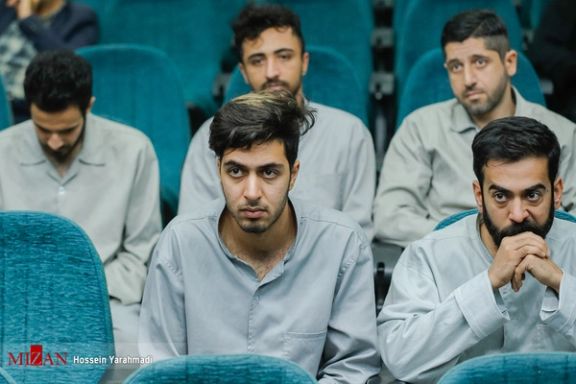
A rights monitoring group has revealed horrifying details of torture inflicted on detainees in the case of a Basij agent killed during antigovernment protests.

A rights monitoring group has revealed horrifying details of torture inflicted on detainees in the case of a Basij agent killed during antigovernment protests.
The Follow-up Committee of Iranian Detainees, an independent organization monitoring the status of protesters arrested during anti-regime rallies across the country, reported that the prisoners linked to the death of Basij member Rouhollah Ajamian were subjected to brutal methods. These methods included hanging them for extended periods while their hands and feet were cuffed behind their backs.
While earlier reports hinted at torture and forced confessions, this recent disclosure reveals the extent of the abuse. A source close to the accused in the case revealed that the torture had persisted for over a month. It involved methods such as mock executions, electric shocks, punches, kicks, and prolonged beatings.
Iran executed Mohammad-Mehdi Karami and Mohammad Hosseini in January, and this week the country's Supreme Court upheld harsh sentences for several other protesters allegedly involved in the killing of the Basij agent during antigovernment demonstrations near the capital Tehran in October.
Fourteen protestors faced trial in the case, with some receiving sentences of up to 15 years, which has been criticized by human rights advocates. "On the day the sentences were issued, everyone was sentenced to 25 years in prison, and five were sentenced to death," the committee cited an informed source as saying.
According to the rights group, Karami and Hosseini were told they had been pardoned just one day before their execution.
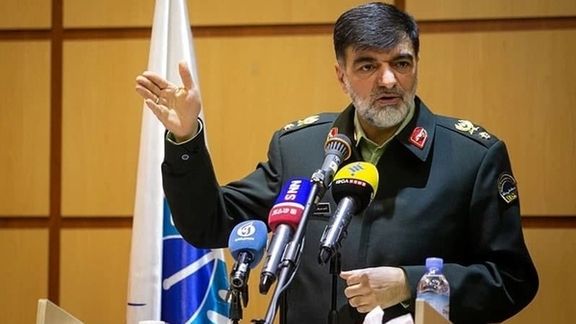
Islamic Republic’s police chief has once again issued a harsh warning to potential protesters ahead of the first anniversary of anti-regime demonstrations in mid-September.
The Chief of the Law Enforcement Force of the Islamic Republic of Iran, Ahmedreza Radan, described the firm handling of troublemakers and thugs as a serious police directive, stating: I assure everyone that we will not be lenient against lawbreakers."
As the anniversary of the Women, Life Freedom movement approaches, Iranian officials and hardliner clerics have repeatedly warned potential demonstrators that the government will harshly deal with them. It took the regime months to quell nationwide street protests that started last September, when Mahsa Amini was killed in hijab police custody. Now, officials and hardcore regime supporters are concerned that a new round of protests will start next month.
Radan who was appointed at police chief in January amid the most serious antiregime protests in the past four decades, has been sanctioned by the United States for being “responsible for or complicit in, or responsible for ordering, controlling, or otherwise directing, the commission of serious human rights abuses against citizens of Iran or their family members."
He replaced Gen. Hossein Ashtari, whom according to Iran International’s sources, Supreme Leader Ali Khamenei scolded for his “incompetence” in quelling the protests.
Radan served as a deputy police chief from 2008 to 2014 and played a key role in the crackdown on protesters after the disputed 2009 presidential elections and in the formation of “morality police”.
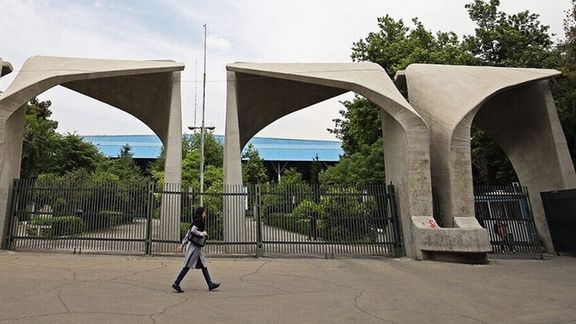
Amid the regime’s intensified pressure on academia, a newspaper in Tehran has shed light on the purge of university professors in the past 17 years.
In an article on Thursday, Etemad, one of Iran’s prominent reformist dailies, published a list of 157 tenured professors who were dismissed, forced into retirement, or banned from teaching for their criticism and dissenting views from 2006 to the end of August 2023. But the purge went beyond that, when non-tenured lecturers were replaced by "religious" and "revolutionary" professors.
The trend started after Mahmoud Ahmadinejad took office and continued in Hassan Rouhani’s administration and then under President Ebrahim Raisi, seeing successive governments in the Islamic Republic systematically expelling seasoned professors for their a "secular views," among other political reasons.
During a meeting with professors who were members of IRGC’s Basij forces in the first week of the purge, Ahmadinejad said that the main part of the professors’ duties is promoting “the culture and ideals of the Islamic revolution.” “The educational system and the approach to knowledge production need to change and Basij can play a role in promoting this in society," he said.
A year later and after firing dozens of professors, Ahmadinejad said "Our education system has been influenced by the secular system for 150 years... Changing this environment is challenging and complex, but the work has begun.” He also urged students to protest against the presence of “liberal and secular professors in universities.
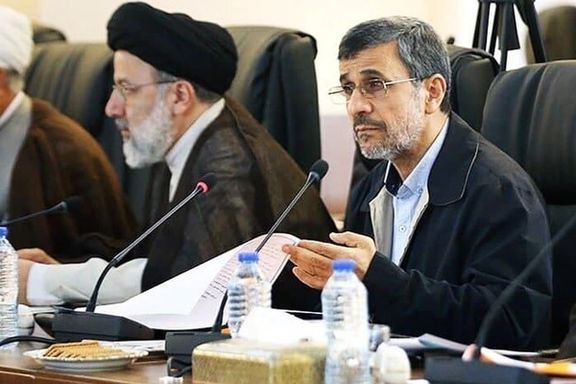
During all these years, the regime also tried its best to employ professors in line with the ideals of the Islamic Republic, Etemad elaborated, providing numerous cases of such recruitments.
One such regime ideologue was Sadreddin Shariati, the controversial head of Allameh Tabatabai University who embarked on strict sex segregation at the university in early 2010s. After expelling dozens of professors and employing more than 100 new ones for the university, he said, “I mounted a coup d'état against Westernization, superstitions, and ignorance at Allameh Tabatabai University. I recruited religious professors so that they do not talk about secularism in their lectures.” The incumbent education minister, Reza-Morad Sahraei, was Shariati’s right-hand man at the time.
Another case was Farhad Rahbar, who was the head of Iran’s Azad University in 2017 and now serves as an aide to Raisi. He cancelled contracts of all part-time professors and one-year contracts of 168 full-time professors at the Faculty of Science and Research of this university, leading to chaos at the start of the academic year. He then put the names of 2,800 professors employed in various units of the Azad University on a dismissal list. He planned to replace them with new recruits but was himself dismissed before he could implement his plan.
According to a report from the Ministry of Science, Research, and Technology in 2013, during Ahmadinejad's presidency, approximately 17,000 new faculty members were added to universities payroll. Such a move is speculated to be repeated as President Raisi plans to add 15,000 "revolutionary" professors to the academic faculty of universities nationwide in the near future.
Raisi embarked on his ‘purification’ in the first month of his tenure, expelling Bijan Abdolkarimi, an associate professor in the Department of Philosophy at the Islamic Azad University. In January 2022, Mohammad Fazeli, a professor of sociology at Beheshti University, and Arash Abazari, a philosophy professor at Sharif University, were dismissed. This was just the beginning and even months before the popular uprising across Iran ignited by the death of Mahsa Amini in police custody in September.
Since then, a large number of academics voiced solidarity with protesters and once the protests were quelled, the Raisi administration intensified the crackdown, pushing professors into early retirement, not renewing teaching contracts, cancelling classes without prior notice, removing and suspending professors, and reducing monthly salaries. Apart from these prevalent methods, tens of professors have also been summoned or temporarily detained.
This policy, appears to be part of a wider initiative to cleanse universities of critics of the regime and efforts to suppress student protests, has also led to announced delays in the start of the academic term in some universities while several universities may hold lectures online to reduce chances of campus protests on the first anniversary of Women, Life, Freedom movement.
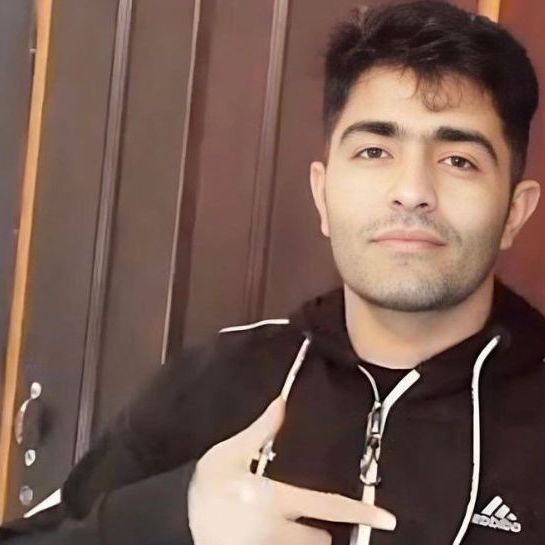
A young protester named Kemar Tahmasbi was reportedly killed in an armed clash with regime forces in the southern city of Izeh on Wednesday.
Tahmasbi was among the youths who actively participated in the protests that unfolded from the 15th to the 17th of November in Izeh. He shared camaraderie with Mustafa Ahmadpour, another protester who was killed on the 21st of July in a fierce armed altercation with regime agents.
While unconfirmed reports suggest that Mehdi Almasi, who was driving the vehicle, was also fatally shot by IRGC forces, the identities of the victims and the incident itself cannot be independently verified by Iran International.
The IRGC issued a statement revealing that in response to “organized actions by armed and criminal elements in Izeh, orders were issued to detain them after identifying their locations and activities. These individuals resisted arrest and, in the exchange of gunfire, two were killed, while three were apprehended.”
Additional reports indicate that regime agents wounded two teenagers, Babak Bahmani and Shaayan Almasi, with gunshots and took them into custody.
In a previous development in April, eight citizens detained during the nationwide protests in Izeh were indicted for charges such as "waging war against God" and "corruption on earth," carrying potential death sentences. These arrests occurred in November 2022 by the intelligence agents of the Islamic Revolutionary Guard Corps.
Earlier this year, Iran's judiciary sentenced another protester, Abbas (Mojahed) Kourkouri, to death for the killing of a nine-year-old named Kian Pirfalak during the November unrest in Izeh. Kian and his family were targeted by unidentified individuals during a night of protests while they were in their car. The assault left Kian's father paralyzed due to severe injuries sustained during the attack."
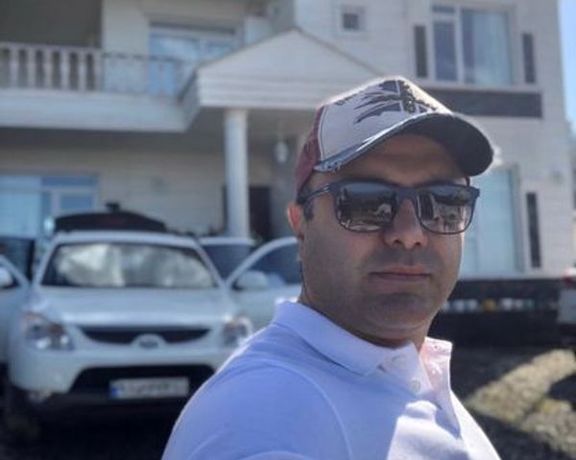
A 42-year-old Iranian citizen, who holds Dutch citizenship and lives in the Netherlands, has been detained in Tehran over suspicions of holding dual nationality.
According to information received by Iran International, Saeed Farahani had his passport confiscated upon entry into Iran two months ago. He was then summoned to judicial authorities and went to Evin Court but was arrested and detained earlier in August.
Since his arrest, Farahani has had no contact with his family, and his current status remains unknown.
It appears that he was detained due to suspicions of holding dual citizenship, but information received by Iran International indicates that he does not possess dual citizenship.
For many years, the Islamic Republic has detained Iranian citizens who reside abroad or who hold dual citizenship in an attempt to exert pressure on Western governments and to secure concessions in exchange for the release of these citizens.
Recently, Tehran and Washington reached an agreement that would secure the release of five American hostages imprisoned in Iran in exchange for the Islamic Republic gaining access to $6 billion of its blocked assets that were frozen in South Korea.
Commenting on this recent deal, Jake Sullivan, the White House National Security Advisor, stated that the US believes the potential agreement for the release of these five imprisoned American citizens by Iran is still on track, but he refrained from providing a timeline.
Based on this agreement, individuals such as Siyamak Namazi, Emad Sharghi, Morad Tahbaz, and two other unnamed American citizens are to be released. These individuals have already been placed under house arrest until the release deal is finalized.

Bita Shafiei, a resident of Shahinshahr in central Iran, who was arrested during protests against chemical attacks on schools, has appealed to the public for support.
Shafiei, a courageous student, who was apprehended during demonstrations against chemical attacks on schools, issued a heartfelt plea urging the public to stand in solidarity with her.
In a circulated video on social media, Shafiei said that the government thrives on instilling fear and warned that without public support, the regime will continue to use to extreme measures against protestors.
In her recorded message, Shafiei revealed that she had endured torture including the fracturing of her fingers, during her trial.
Shafiei is the daughter of Maryam Abbasi Nikoo, a political prisoner held at Evin Prison in Esfahan, detained on charges related to religious insults.
On June 26th, security agents forcefully entered Bita's parental residence with the intent to arrest her. Upon discovering her absence, they subjected her father to physical assault and detained her mother, Maryam Abbasi Nikoo after which, according to sources, the authorities brought charges of religious insults against her mother.
As the September 16 anniversary of Mahsa Amini's death at the hands of the police approaches, the regime has escalated its suppression of activists, students, educators, and writers. Families of protesters who lost their lives during the uprising, as well as civil and human rights activists and students, have become primary targets of the regime's repressive efforts, seeking to silence prominent voices.






